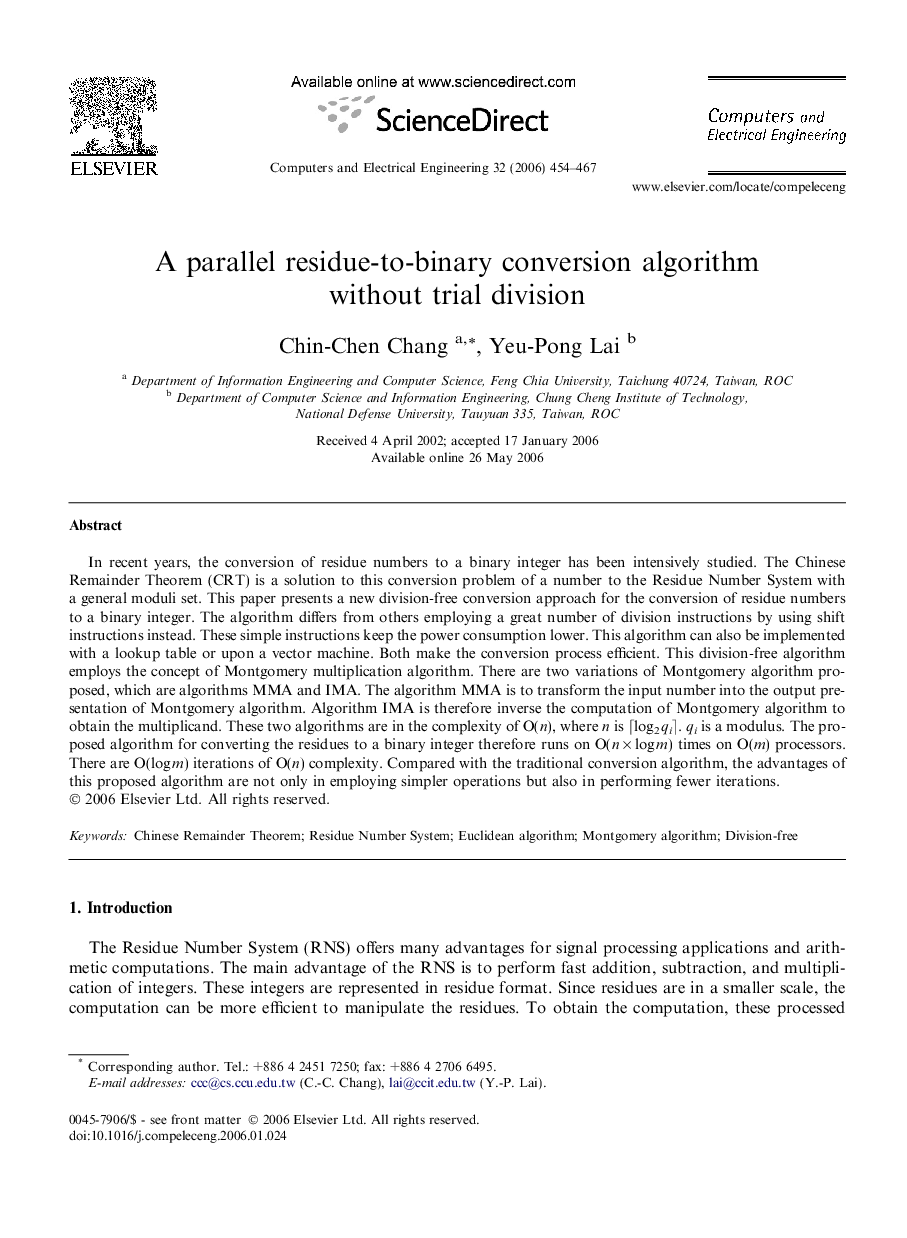| کد مقاله | کد نشریه | سال انتشار | مقاله انگلیسی | نسخه تمام متن |
|---|---|---|---|---|
| 455812 | 695559 | 2006 | 14 صفحه PDF | دانلود رایگان |

In recent years, the conversion of residue numbers to a binary integer has been intensively studied. The Chinese Remainder Theorem (CRT) is a solution to this conversion problem of a number to the Residue Number System with a general moduli set. This paper presents a new division-free conversion approach for the conversion of residue numbers to a binary integer. The algorithm differs from others employing a great number of division instructions by using shift instructions instead. These simple instructions keep the power consumption lower. This algorithm can also be implemented with a lookup table or upon a vector machine. Both make the conversion process efficient. This division-free algorithm employs the concept of Montgomery multiplication algorithm. There are two variations of Montgomery algorithm proposed, which are algorithms MMA and IMA. The algorithm MMA is to transform the input number into the output presentation of Montgomery algorithm. Algorithm IMA is therefore inverse the computation of Montgomery algorithm to obtain the multiplicand. These two algorithms are in the complexity of O(n), where n is ⌈log2 qi⌉. qi is a modulus. The proposed algorithm for converting the residues to a binary integer therefore runs on O(n × log m) times on O(m) processors. There are O(log m) iterations of O(n) complexity. Compared with the traditional conversion algorithm, the advantages of this proposed algorithm are not only in employing simpler operations but also in performing fewer iterations.
Journal: Computers & Electrical Engineering - Volume 32, Issue 6, November 2006, Pages 454–467